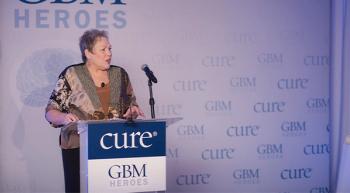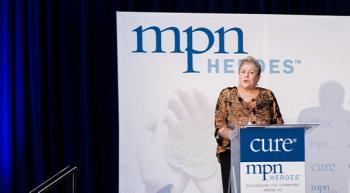
At the 4th Annual Patient Navigation Town Hall "Empowering and Mobilizing Our Patient Navigation Workforce", we provide you insight into how to get properly certified as a patient or nurse navigator.

At the 4th Annual Patient Navigation Town Hall "Empowering and Mobilizing Our Patient Navigation Workforce", we provide you insight into how to get properly certified as a patient or nurse navigator.

The importance of nurse navigation and patient navigation through the COVID-19 pandemic.

Patient navigators are the vaunted “healthcare emissaries” for patients with breast cancer and can help navigate their journey a great deal. In this conversation from the Susan G. Komen Greater New York City “Empowering and Mobilizing Our Patient Navigation Workforce” virtual conference experts highlight the results of a survey of patient navigators.

An 11-year survivor of inflammatory breast cancer details how even though she considers herself one of the lucky ones, the awareness that “as far as we know” could change in one blinding moment still haunts her.

From a new survey showing that more than one-third of Americans missed cancer screenings due to COVID-19 fears to a couple overcoming both COVID-19 and breast cancer, here’s what’s making the headlines in the cancer space this week.

One cancer survivor emphatically disagrees with the notion that cancer is now a “chronic” condition.

“Laughter is the best medicine” is a principle that CURE Voices contributor Khevin Barnes takes, well, seriously. In this edition of CURE Community Vlogs, Khevin takes a minute to discuss how laughter can help men with breast cancer find a new outlook on their diagnosis.

Individuals who were screened for hereditary cancer risk in the past might benefit from getting tested again using today’s more sophisticated panels.

A celebrity death reveals how little we really know about breast cancer.

A survivor of male breast cancer goes through what he wishes he knew before a breast cancer diagnosis.

Dr. Julia Rani Nangia explains how certain chemotherapy types and sequencing have different impacts on hair retention for patients with breast cancer.

Plucking a fat and juicy blueberry from a new mastectomy bra reminded this breast cancer survivor that life can still be sweet.


With the passing of CURE co-founder Kathy LaTour, one contributor remembers the advice, friendship and kindness that Kathy passed on to her that helped her to share her own cancer story.

This week on the “CURE Talks Cancer” podcast, we spoke with Whitney O’Connor, who was 30 years old when she was diagnosed with breast cancer - for the first time. After going through treatment and facing breast cancer a second time just a few years later, O’Connor created her own silver lining: The Boobie Queen Company.

The impact of the COVID-19 pandemic on the cancer landscape has lead to enormous challenges for patients and professionals alike, but the impact of the pandemic will be felt on cancer care for years to come.

Celebrating is a vital part of survivorship and those affected by cancer should be allowed to voice their opinions openly.

Incessant and challenging these diseases demand our equal attention in our lives.

“I had the honor of spending time with Kathy at CURE's inaugural Ovarian Cancer Heroes ceremony. She was such a nice, helpful person and did so much for the cancer survivor community,” one Facebook user wrote about CURE Magazine co-founder Kathy LaTour.

“With a new administration route, Phesgo offers an outpatient option for patients to receive (Perjeta) and (Herceptin),” Dr. Richard Pazdur said in a press release issued by the FDA.

Breast pain during the pandemic is extra worrisome, but finding an explanation for it is sometimes much simpler.

In honor of CURE co-founder Kathy LaTour, who passed away June 19, 2020, a fellow VOICES writer shares the lessons she learned by reading Kathy’s insightful words.

"Age is an issue of mind over matter. If you don't mind, it doesn't matter."

“Anyone who met my mother was touched by her spirit. She challenged people to be curious, to seek more, to learn more and to challenge themselves,” LaTour’s daughter, Kirtley Perkins, wrote on Facebook.
